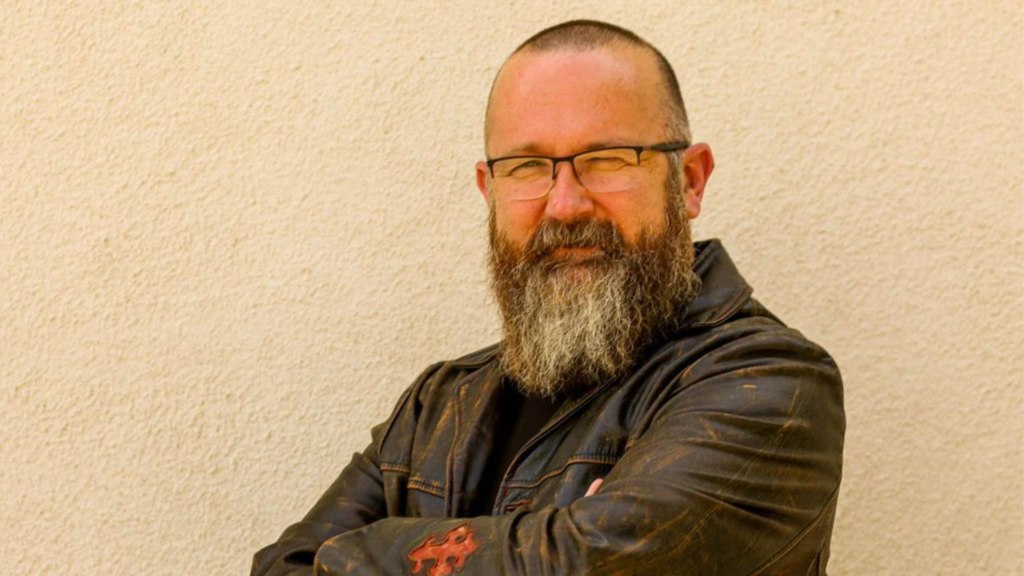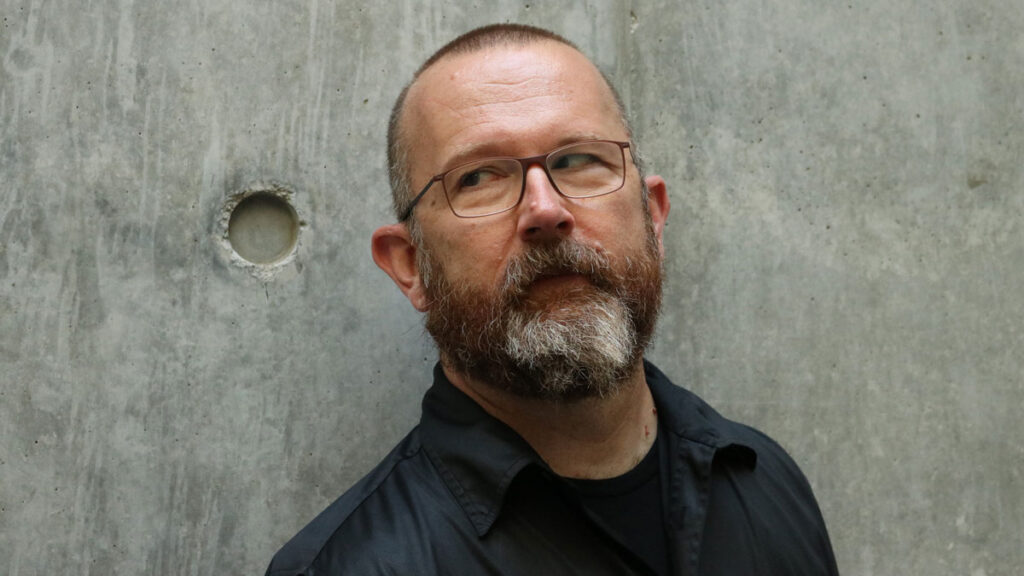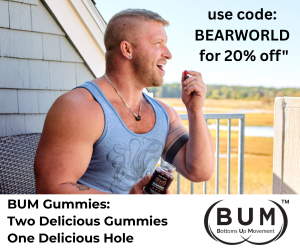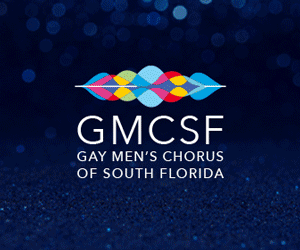
Queer author Jonathan Alexander discusses memoir, prepares for NYC event
Queer Los Angeles writer Jonathan Alexander will be in NYC for June event.
When asked if the moral of his memoir “Dear Queer Self,” is “it gets better?” queer author Jonathan Alexander replied, “Fuck that. For queer people, it doesn’t necessarily ‘get better,’ but viewed through our experiences, it does get more interesting, richer.” Join Alexander and guest, “Funeral Diva” author Pamela In this reading and conversation, talk about their recent writing as well as what it’s like to work with memory in writing about queer lives. From grappling with the legacies of AIDS to connecting with ongoing histories of class and racial trauma, Sneed and Alexander discuss the power of writing queerly about our lives, loves, communities, histories, and futures.

Hear Alexander speak about his work in person or via Live Stream!
June 16, 2022 7 p.m. – In-Person/Live Stream Event: The Weight of History Can Make Us Stronger, Even If It Sometimes Tries to Kill Us: Queer Memoir with Pamela Sneed and Jonathan Alexander. Venue: Bureau of General Services–Queer Division at The Lesbian, Gay, Bisexual & Transgender Community Center, 208 West 13th Street, Room 210 New York, NY 10011. Free/Suggested donation $10. More info here.
It comes as Alexander has two new books out, released late last year.
Stroke Book: The Diary of a Blindspot (Fordham University Press) examines the aftermath of an unexpected medical crisis—a minor stroke—as Alexander considers how a lifetime in a society toxic to queer people has impacted his health as well as his perception of queer time. Untethered to the markers of heteronormative life (marriage, birth of a child, raising kids, grandchildren), how do we queers experience time? Our aging bodies?

Bullied: The Story of an Abuse (Punctum Books), the second book in his “Creep Trilogy,” will follow in November. In it, Alexander looks at how the pressure of being queer inescapably and fundamentally shapes our lives and the stories we tell ourselves to make our queerness bearable. In doing so he reflects on a host of oddly but intimately related topics, from drug abuse, sadomasochism, Catholic priests, and cruising to MAGA-capped boys and why Jussie Smollett may have staged his own homophobic attack. (“I don’t condone it. But I get it.”)
Adapted from Stroke Book: The Diary of a Blindspot by Jonathan Alexander, Fordham University Press.

In the late summer of 2019, my husband Mack and I woke up in our B&B in Colorado, having spent a weekend looking at real estate and visiting with family and friends. We’d had a wonderful time, one of those times that felt like a turning point, a new chapter, an opening vista, all the cliché things you wonder if you’ll ever feel after having gone through the clichés of a somewhat darker, less possible time. (I call that time my 40s.). We woke up, ready to pack our bags and head back to California, but something, as they say — as I said that morning, like I was following a script — something was wrong. I couldn’t’t see out of the lower left-hand portion of my right eye. A curtain had been closed, a veil descended. A bit of the world grayed out.
I spasmed around the room in my underwear, fearing a detaching retina. Mack wondered if we could fly home and have it treated there. I said no, absolutely not, it has to be seen to right away.
Hours later, after multiple calls and instructions from our health insurance provider, we found ourselves in a medical office outside Denver. Pupil dilation, bright lights, eye-watering scans, and no, my retina was not detaching. Instead, the doctor could see a white spot at the back of my eye, which he surmised was a bit of plaque that had found its way from somewhere else in my body and lodged in a branch artery of my right eye’s retina. The plaque was blocking blood flow to that part of the eye, causing what he called an occlusion.
I’d had an “eye stroke.”
My blood pressure was also very high. I’d been taking a prescribed diuretic in an attempt to control blood pressure, and Zoloft in an attempt to control my stress, but this morning my blood pressure was spiking. Of course it is. I am going blind, I said. But the doctor wasn’t amused. He sent me immediately to the emergency room of the local hospital.
He was worried that the eye stroke — a bit of plaque blocking an artery — was the beginning of a much more substantial cerebral event: another bit of plaque blocking an artery in my brain.
So began a new journey in my life, a new “phase” we might say. Diet changes, new medications, a shift in “lifestyle” — but not only such inevitable changes to maintain my life. My early 50s would become marked by the constant worry that another bit of plaque could come lose and, this time, cause even more damage, potentially even killing me.
My whole relationship to time changed overnight.
But hadn’t it always been a little queer, that relationship to time, especially time past?
I grew up in the deep south of Louisiana, in New Orleans, which outsiders understand as a let- the-good-times-roll kinda place, but which is still in the deep south for those of us born and raised there.
I went through puberty in the 1980s, when AIDS seemed god’s just punishment for the wicked. And by the time I started having sexual thoughts in the 1980s, I knew that I was very likely wicked. A homosexual. A faggot. Queer.
I believed more than anything, more than in the existence of god himself, that I would likely die of AIDS. Because that’s what happens to the wicked. That’s what happens to homosexuals.
God himself didn’t need to exist for this truth to be inexorable. Everyone said so. My church, my school, my parents, my friends, our neighbors, our community, our president. You see, silence is always consent. Silence is always consent. Ronald Reagan didn’t have to talk about AIDS for me to know that he fully approved of the widespread death of homosexuals. And there were many, so very fucking many, who weren’t silent at all. They knew, and delighted in saying what they knew: homosexuals die of AIDS, slowly, painfully, unloved, unwanted, uncared for.
Not everyone will understand this story. Not everyone should. And I’m actually glad for this. If you were born in a different time and place, perhaps later than I was and more on an east or west coast, then you’re not likely to know quite the anxiety that has become my constant companion, my most trusted friend. Because I know he’ll never desert me.
Different times, different places. Stories shape us, but always in space and time, which shape the stories.
A young adulthood, struggling with coming out, drinking too much, unmindful of diet, not caring what I put in my body, or rather caring mostly that I numb myself by seeking out certain kinds of foods, sugars, carbs, alcohols. Self-medicating as they say. As I myself said at the time: I’m self-medicating.
I so desperately did not want to be gay. 1980s, south Louisiana, conservative Christian upbringing, Catholic schooling. Next to nothing in my life wanted me to be alive. Audre Lorde puts it this way: “We were never meant to survive.”
I learned the lesson well. I tried to kill myself, slowly, however slowly but also assuredly, with food, with junk food, with poisonous food all too readily available for a poor kid in college, surviving term to term on grants and scholarships doled out at the last minute. Some weekends I could only afford Vienna sausages on white bread with a little mustard for taste. These days we call this kind of experience “food insecurity.” Food was on a long list of things about which I was insecure.
I was most insecure, traumatizingly insecure, about the state of my immortal soul. I was damned already for wanting that boy in my philosophy class, the writer for the school newspaper, a bit stocky, his greasy brown hair swooping over one eye. I loved that he completely ignored me, likely disdainful if not even contemptuous of my interest, my longing gazes. I fed on his disdain. I ate my sausages on white bread and, when I could, drank something called jet fuel at the local bar, a high-alcohol cocktail that looked like Windex.
It made me feel better. It made me feel less.
I’m tempted to start my story here, a time when, so young, 20s, I was already weakening the walls of my arteries and veins, feeding on the foods that would slowly start to clog them, eating my pain, eating the pain given to me by others.
I would eventually know better.
But what lives on inside us? How many things live on inside us, even when we think we have moved on, even when we think we know better?
I cannot give you my space and time. I would not wish it on you. But I will tell you about it. I hope you won’t fully understand it, not in your bones, in your quaking bones, where it counts. But I still need to tell you about it.
Growing up in the deep south, in the 1980s. Reagan’s America. The height of AIDS in America. The fear of dying from being homosexual. The fear of eternal damnation.
This is the history that never leaves me. These are the times and the places that are never far from me. I would say, this is the context that conditions my vision. These are the bits and pieces of my life that are rarely out of my sight.
They are the bits and pieces that can become dislodged sometimes, and want to kill me. They are there even when I don’t see them, even when they look like a blindspot.
About Jonathan Alexander
Jonathan Alexander is a writer living in Southern California where he is Chancellor’s Professor of English at the University of California, Irvine. He is the author, co-author, or editor of twenty-one books. His cultural journalism has been widely published, especially in the Los Angeles Review of Books for which he is the Young Adult editor, where founding editor Tom Lutz called him one of “our finest essayists.” He lives with his husband and cat, and when not writing, dabbles in watercolors and plays piano in a music ensemble with friends. For more about Jonathan Alexander and his books please visit www.thecreeptrilogy.com and www.the-blank-page.com.









